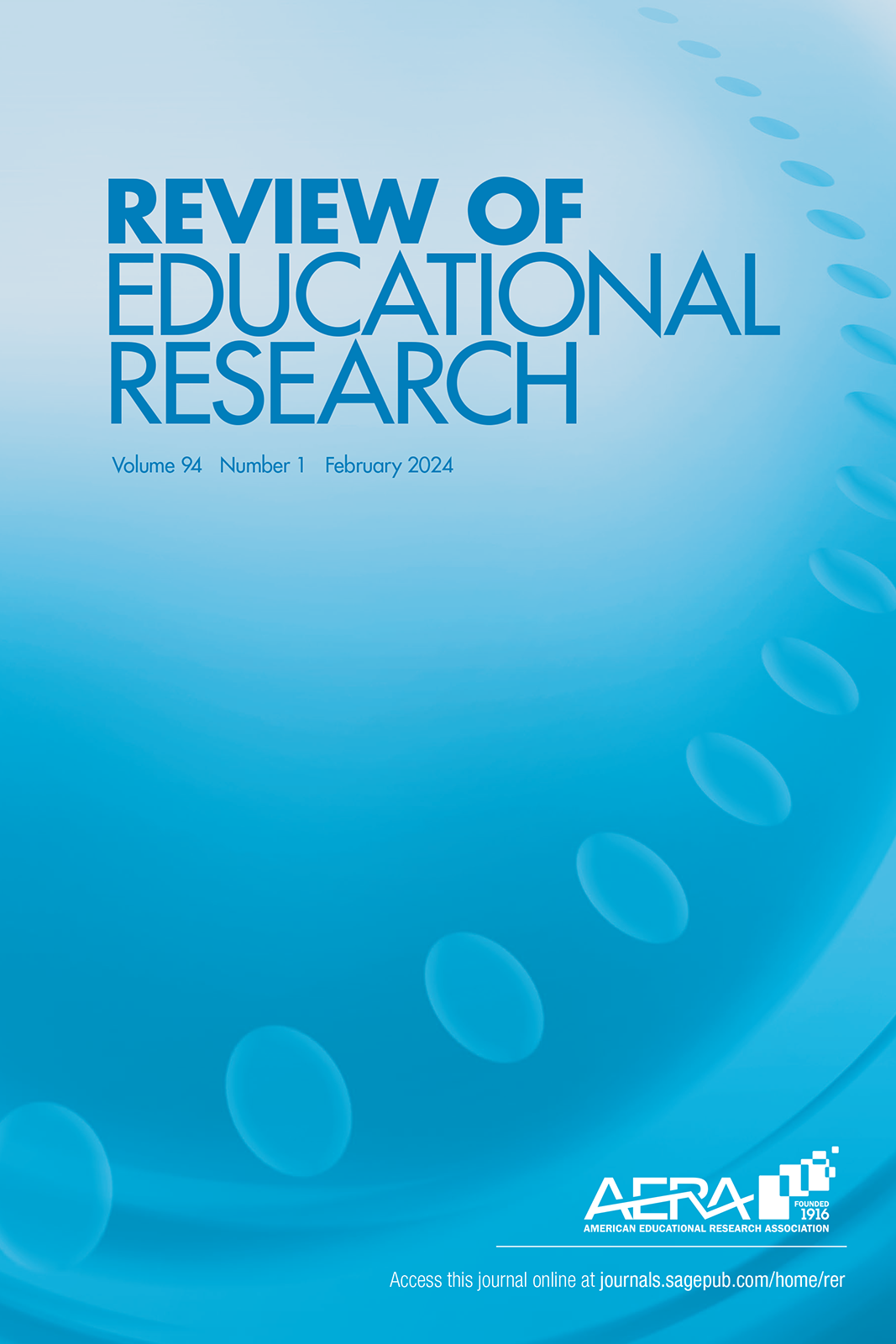Assessing Teachers’ Culturally Responsive Classroom Practice in PK–12 Schools: A Systematic Review of Teacher-, Student-, and Observer-Report Measures
IF 7.4
1区 教育学
Q1 EDUCATION & EDUCATIONAL RESEARCH
引用次数: 0
Abstract
The importance of improving teachers’ use of culturally responsive practice (CRP) in the classroom setting has been widely recognized. Although quantitative data on teachers’ use of CRP has potential to be a helpful decision-making tool in advancing that goal, little is known about the psychometrics of classroom-based CRP measures, their utility in evaluating the impact of interventions designed to improve teacher CRP, or their use to inform teacher professional development in CRP. The current study reports findings from a systematic review of the research on the quantitative measurement of CRP using the 2020 Preferred Reporting Items for Systematic reviews and Meta-Analyses standards to document how CRP is operationalized and measured in prekindergarten–12th-grade classrooms in the United States (U.S.). Searching across six databases, 27 measures were identified for inclusion. The vast majority of measures were teacher self-report surveys, and relatively few were student-report or external observer assessments. We examined the availability of classroom-based observational and survey instruments and critically analyzed each measure through an argument-based approach to validation. We concluded that although some CRP measures hold promise, the validity of their interpretation and use is not adequately supported by evidence, with some exceptions. This lack of empirical evidence is exacerbated by the limitations of single-informant measurement of CRP. More multi-informant assessment approaches are needed.评估 PK-12 学校中教师的文化顺应性课堂实践:教师、学生和观察者报告措施的系统回顾
提高教师在课堂教学中使用文化顺应实践(CRP)的重要性已得到广泛认可。尽管有关教师使用文化顺应性实践的定量数据有可能成为推进这一目标的有用决策工具,但人们对基于课堂的文化顺应性实践测量的心理测量学、其在评估旨在改善教师文化顺应性实践的干预措施的影响方面的实用性,以及其在教师文化顺应性实践专业发展中的应用知之甚少。本研究采用 2020 年系统性综述和荟萃分析首选报告项目标准,对 CRP 定量测量研究进行了系统性综述,记录了美国学前班至 12 年级课堂中 CRP 的操作和测量方法。通过在六个数据库中搜索,确定了 27 项测量方法供纳入研究。绝大多数测量方法是教师自我报告调查,相对较少的是学生报告或外部观察者评估。我们研究了课堂观察和调查工具的可用性,并通过基于论据的验证方法对每种测量方法进行了批判性分析。我们得出的结论是,尽管有些 CRP 测量方法很有前景,但其解释和使用的有效性并没有得到充分的证据支持,只有一些例外。单一信息来源的 CRP 测量方法的局限性加剧了实证证据的缺乏。需要更多的多信息评估方法。
本文章由计算机程序翻译,如有差异,请以英文原文为准。
求助全文
约1分钟内获得全文
求助全文
来源期刊

Review of Educational Research
EDUCATION & EDUCATIONAL RESEARCH-
CiteScore
24.10
自引率
2.70%
发文量
28
期刊介绍:
The Review of Educational Research (RER), a quarterly publication initiated in 1931 with approximately 640 pages per volume year, is dedicated to presenting critical, integrative reviews of research literature relevant to education. These reviews encompass conceptualizations, interpretations, and syntheses of scholarly work across fields broadly pertinent to education and educational research. Welcoming submissions from any discipline, RER encourages research reviews in psychology, sociology, history, philosophy, political science, economics, computer science, statistics, anthropology, and biology, provided the review addresses educational issues. While original empirical research is not published independently, RER incorporates it within broader integrative reviews. The journal may occasionally feature solicited, rigorously refereed analytic reviews of special topics, especially from disciplines underrepresented in educational research.
 求助内容:
求助内容: 应助结果提醒方式:
应助结果提醒方式:


